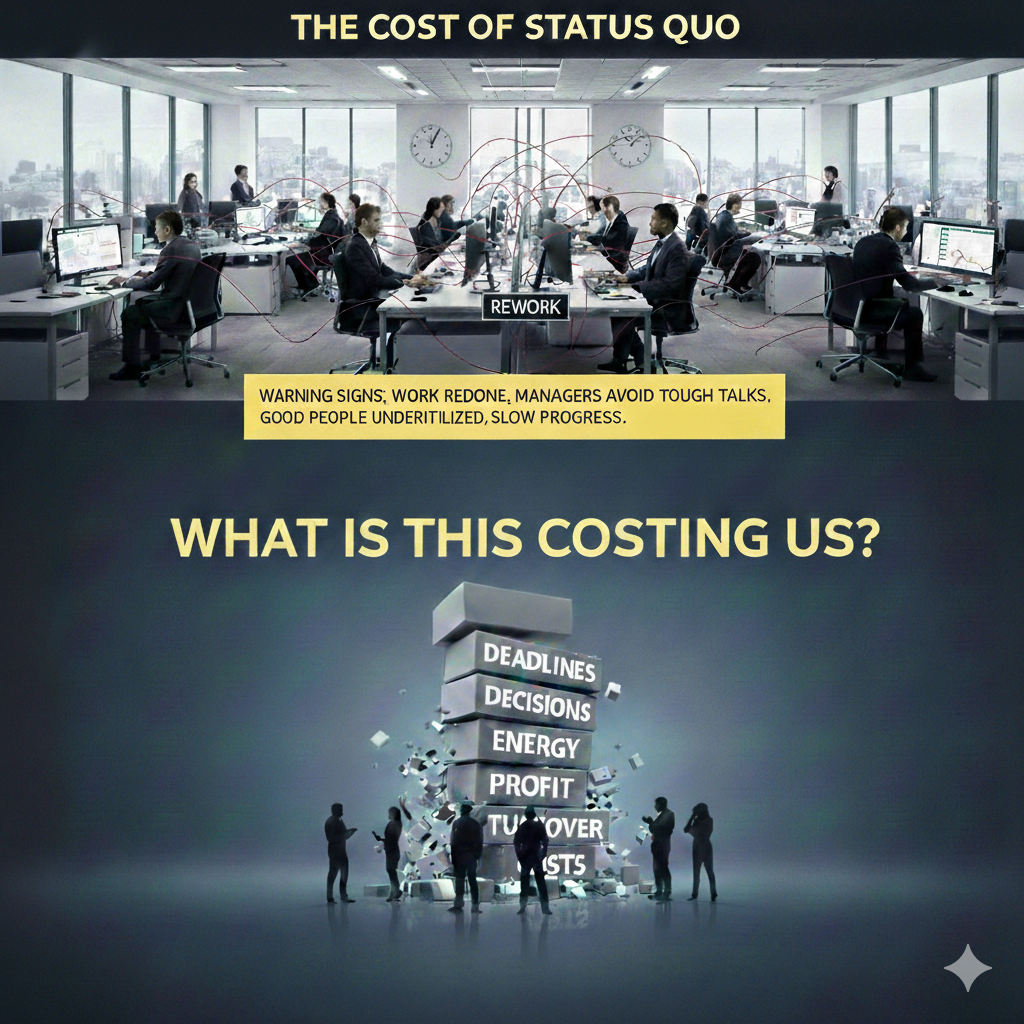Uncovering Your Blind Spots

How satisfied are you with your life and your impact? What rating would you give yourself on a 10-point scale? If you aren't a 10 right now, how interested are you in growing - in closing or at least narrowing the gap?
For those who wish to close the gap, what are you doing about it? Is your self-discipline strong enough to move you forward toward being a 10 in life and workplace satisfaction? Do you have the willpower to hold yourself accountable to taking the daily steps needed for continual growth? If not, don't be disappointed in yourself. We all have a limited amount of willpower each day. An accountability partner or coach can support us to greater heights than we can achieve independently. What is your willingness to be coached to more fully achieve your potential?
Coach Micheal Burt, author of Everybody Needs a Coach in Life, suggests that to reach our potential in life and work we need to be high achievers in 4 areas: body, mind, heart, and spirit. In which of these areas have you not yet reached your potential? If you have hit a ceiling, yet haven’t reached your potential, it may be time to invest in a coach. If you wish you could be more, but think you might have reached your potential, a coach can often help you identify your blind spots and unleash opportunities you have never considered.
Let's take a look at realities and thoughts in each of the 4 areas which could be limiting your impact. Which apply to you?
Body – I’m not happy with my appearance, my strength and energy, or my health.
Mind – I need to expand my knowledge base to get to the next level in life or work.
Heart – I am no longer passionate. I am lukewarm or passive about important relationships in my life and/or about my work.
Spirit – I am just going though the motions of life without any real connection to God or to purpose.
Close your eyes for a moment and dream about the life you would like. What state of body, mind, heart, and spirit would you like to experience every day? Do you have the internal fortitude to close the gap between your current reality and your potential? Be honest with yourself.
You could close the gap a little on your own and live an okay life. Or, you could work with a coach to narrow the gap so you can uncover your blind spots, use more of your potential, and experience a higher level of impact and satisfaction. Which is it going to be?

